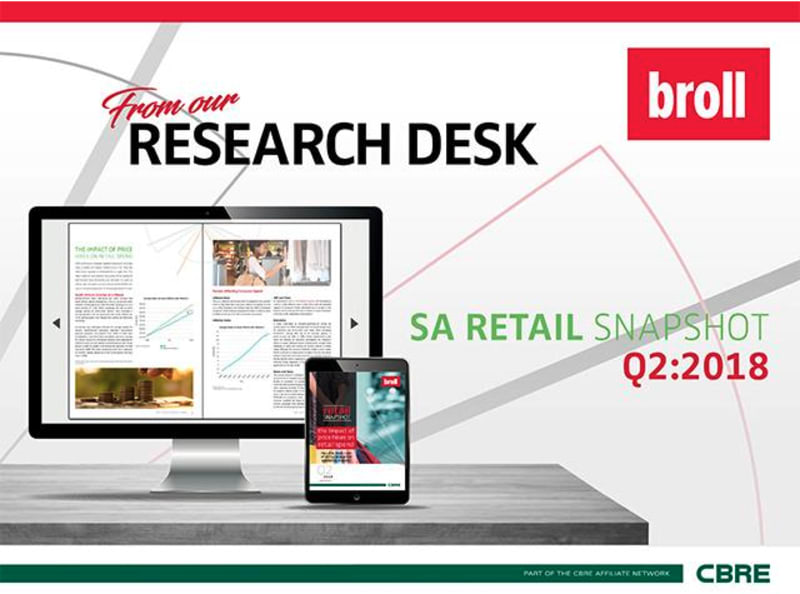To Let
Search
Latest News
Back to news results

Broll Retail Snapshot highlights consumer pressure with innovation as the upside
Shrinking salaries, a VAT increase, petrol price hikes, escalating food costs and soaring electricity fees are just some of the impacts highlighted in the Broll SA Retail Snapshot Q2:2018 Report.
Looking at the Second Quarter in review, the report notes a number of key factors affecting the spending power of the average consumer and a comparison of costs in 2018 vs 2008.
The report notes that salary increases have slipped behind inflation. An investigation was undertaken whereby salaries of lawyers, accountants, engineers, teachers, administrative and personal assistants in 2018 were compared against earnings in 2008. It was found that real salaries rose at an average of 4.9% per annum, but when adjusted for inflation, salaries should have grown by 6.7% per annum for people to earn the equivalent, in terms of buying power, of what they earned in 2008.
Consumer spending has been set back even further with the 1% increase in VAT effective 1 April, a 52 cents increase in the fuel levy and sin taxes up between 6% and 10% depending on the product. South Africa’s electricity cost is in the higher bracket compared with 95 countries across the globe with citizens paying R2.05/kWh compared to the world average of R1.51/kWh. The high cost of electricity hangs on Eskom’s supply shortages and thus prices have increased more than 350% in the past decade, a trend that is unlikely to reverse, the report notes.
The annual increase in municipal rates, taxes and services costs as well as the re-valuation of properties also increase the financial burden of consumers.
The petrol price, although competitive on a global scale, saw a July increase that set a new record hitting R16.02/litre for 95 unleaded. When compared to prices in 2008, petrol now costs 49.7% more. This not only impacts the cost of transport but has spin-off costs in all related industries and particularly food.
The cost of basic goods such as milk, meat, sugar, bread and cheese was much cheaper 10 years ago with a basket of goods in 2018 costing 93.4 % more. White bread costs R13.49 today, but cost only R5,89 in 2008.
Cigarettes cost more than double at R45.35 (for a 20-pack) compared to R20.13 in 2008 while 250g of instant coffee now takes R36.99 out of your pocket, but only cost R13,80 in 2008.
Another interesting area affected by inflation is the entertainment industry. Going to the movies is quite an expensive outing, the report indicates, with the cost of a 2D movie ticket about R85, costing closer to R25, 10 years ago.
When looking at Trading Densities in the Broll managed portfolio and adjusting for inflation, reduced spending becomes apparent over a ten year period. Supporting current economic data and reinforcing that consumers are in fact spending less on certain retail categories.
Regional shopping centre research shows support for grocery/supermarket; food/apparel/home and pharmacy and personal care, while beauty salon/spa; books and fine jewellery are under pressure with lingerie and swimwear suffering the most in a year-on-year comparison.
In conclusion, consumer pressure remains high with no sign of abating and with disposable incomes shrinking and how to spend them thought about more carefully, the provision for shoppertainment and offering something unique is more vital than ever.
Click here to download the full "SA Retail Snapshot Q2:2018" Report.